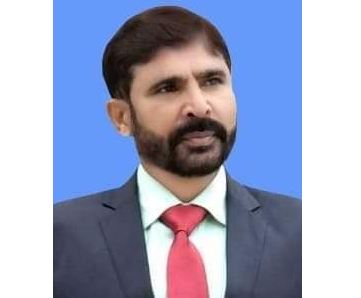Dr. Muhammad Akram Zaheer
Today the liberal international order (LIO) is in decline and many of its supporters in the transatlantic world are mourning its passing. During the first Trump administration, denial prevailed, but today recognition is widespread. Political leaders across Europe and North America have reacted with a range of emotions from anger, blaming the Trump presidency for dismantling institutions, to appeals for a return to the rules‑based order. Yet others seem resigned, unable even to imagine viable alternatives to the system that once defined post‑Cold War global governance.
Trump’s disruptive leadership, neoliberal economic shifts, and the rise of revisionist illiberal powers like China and Russia played roles, but these are symptoms rather than root causes. Instead, the underlying fragility stems from the system’s liberal foundations its institutions, norms, and legalistic commitments. What was presumed to be a source of durability universal principles, legal binding, and inclusive norms proved to be the order’s greatest weakness, rendering it rigid, bureaucratic and unresponsive to changing global realities.
Liberalism is not merely an ideology but the structural logic animating the international architecture constructed after World War II. The belief that durable peace and cooperation would follow from legalistic mechanisms and global norms ultimately bred overconfidence in the self‑healing power of institutions. As a result, the system became inflexible, unable to adapt when nationalist currents surged within member states and rival ideological powers gained strength. The very commitment to universality especially the notion that liberal norms applied equally across cultures rendered the order unable to accommodate dissenting or non‑Western worldviews and thereby sapped its legitimacy and appeal.
The old order are not only unrealistic but counterproductive. Rather than clinging to memory or hoping for a U.S. recommitment to past multilateralism, the international community must confront the reality that the LIO is functional only under certain historical preconditions—conditions that no longer obtain.
Therefore, it need more pluralistic and flexible global order that retains liberal legitimacy in principle, but loosens the strict legalistic discipline that hampered responsiveness. This “less legalistic system” would recognize cultural, normative, and political differences across regions and allow for variable geometries of cooperation. In other words, rather than imposing universal norms via institutional channels, democracy‑oriented states would operate through coalitions of the willing, issue‑based alignments, and informal networks that preserve core values without rigid institutional constraint.
During the Cold War and early post‑Cold War era, liberal powers wielded their leadership to build institutions, often embedding free trade with regimes that guaranteed domestic welfare protections a model described in academic literature as “embedded liberalism”. However, as global economic integration deepened and domestic discontent grew within Western democracies manifesting in populist backlash and protectionist nationalism the public support base for the LIO eroded. In effect, liberalism’s economic and ideological commitments planted the seeds of populist revolt and institutional skepticism.
Externally, non‑Western powers exploited the inflexibility and perceived moralized structure of the liberal order. China and Russia, unbound by liberal norms, maneuvered strategically within the LIO’s institutional architecture joining WTO, UN agencies and other global institutions but manipulating the system from within, while simultaneously building alternative networks of influence. Thus, liberalism not only constrained adjustment but also empowered adversaries to subvert the order’s own rules.
This breakdown has accelerated into what many describe as a “post‑Western era” a multipolar geopolitical landscape no longer dominated by liberal democratic frames. Global South nations, regional coalitions like BRICS, and issue‑based alignments increasingly mobilize on their own terms, often rejecting Western liberal universality. Important global challenges climate, public health, technology governance, migration are handled through patchwork arrangements, rather than the integrated system the LIO once represented.
This means democratic states should acknowledge that universalism is no longer viable. Next‑generation global governance should emphasize pluralism variable cooperation based on shared interests rather than formal institutional membership; overlapping multilateralisms; flexible norms; and a willingness to allow different pathways to legitimacy. The aim is to create a more resilient system capable of absorbing shocks, adapting to diversity, and resisting the kind of moral overreach that fuels backlash at home and distrust abroad.Of course, critics argue that weakening the legalistic structure risks a slide into relativism or an abandonment of liberal principles altogether.

















